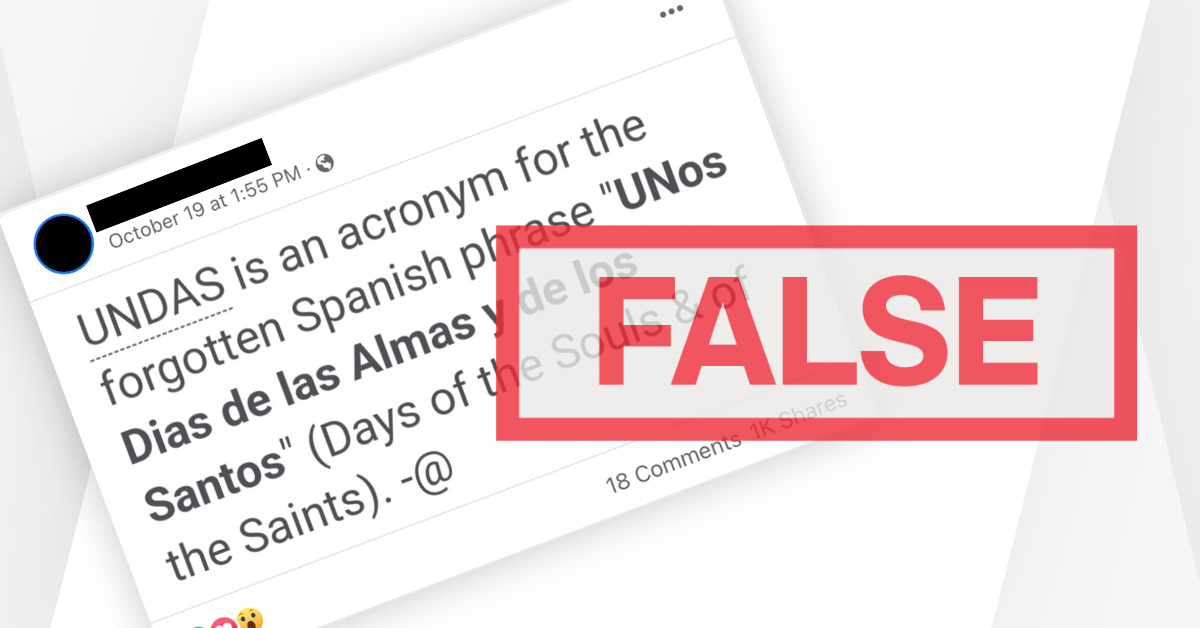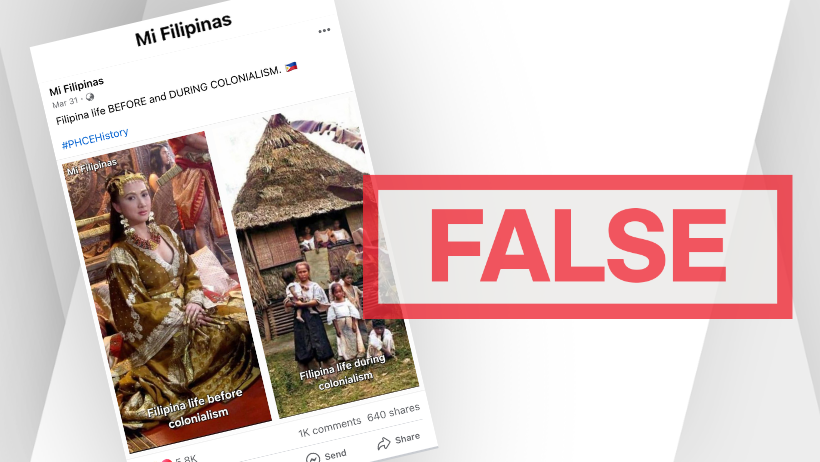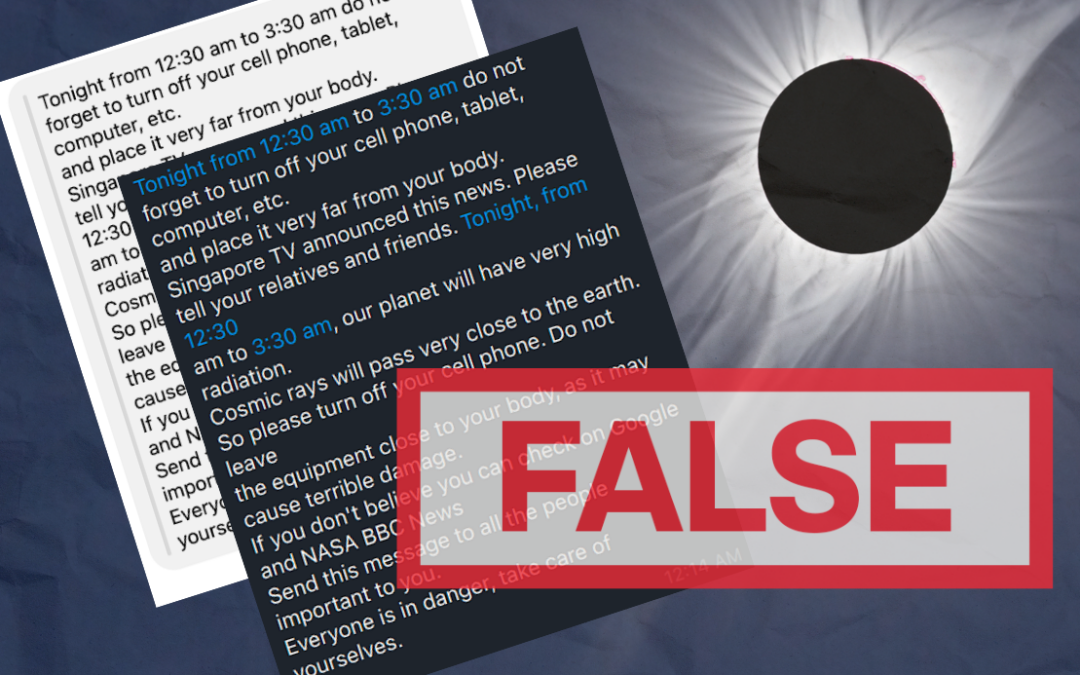
The lesson as we approach the long holiday: netizens should be careful in spreading content backed up by little or no research.

CLAIM: Undas comes from the Spanish phrase ‘UNos Dias de las Almas y de los Santos’
RATING: FALSE
With All Saints and All Souls Days approaching, netizens are curious as to the origins of the term “undas,” the collective name for the twin Catholic feasts.
A Facebook user however claimed without basis that the term came from the “forgotten Spanish phrase ‘UNos Dias de las Almas y de los Santos’ (Days of the Souls & of the Saints).”
We consulted three dictionaries, old and new, to verify if indeed “undas” is derived from a Spanish acronym:
- Diksyunaryo-Tesauro Pilipino-Ingles by Jose Villa Panganiban (1972),
- Tagalog-English Dictionary by Leo James English (1986), and
- UP Diksiyonaryong Filipino edited by Virgilio Almario (2nd Edition, 2010).
All three are unanimous in saying that undas is a noun of Spanish origin, not an acronym.
Panganiban and English however primarily define the word “undras” as the main entry in their dictionaries, to pertain to both All Saints and All Souls.
Panganiban, a former director of the defunct Institute of the National Language who consulted old Tagalog speakers of Batangas province in crafting his monumental work, adds that the word “usually” refers to Nov. 1, which in the Catholic Church is the Solemnity of All Saints.
English, a Redemptorist missionary, refers parenthetically to “undas” as a variation used “in some areas.” There is no mention of undas in Panganiban.
As for the UP dictionary edited by Almario, a national artist and former chairman of the Komisyon sa Wikang Filipino, “undas” appears as the main entry. The lexicon has reversed and “undras” is now the variant in the newer dictionary.
Almario defines undas as referring only to “Araw ng mga Patay,” which means Day of the Dead or All Souls Day, and not All Saints.
The lesson as we approach the long holiday: netizens should be careful in spreading content backed up by little or no research.
This fact-check was produced by PressOne.PH as part of a fact-checking grant from the Philippine Fact-Checker Incubator (PFCI) Project. The PFCI supports news organizations to allow them to meet global fact-checking standards under the International Fact-Checking Network’s Code of Principles.
PressOne.PH believes that fact-checking is essential to combating misinformation and disinformation, and in informing and educating citizens and voters. Read more of PressOne.PH’s Fact-Checking Policy by clicking here.
The public is welcome to send feedback or requests for fact-checks at factcheck@pressone.ph.


FACT-CHECK: Actress’ photo used in false comparison of Filipina life before, during colonialism
The photo in question is that of the actress Ayen Munji-Laurel, who portrayed the role of ‘Hara Lingayan’ in the primetime historical fiction ‘Amaya’ that aired from 2011 to 2012 on the GMA Network.

FACT-CHECK: Hoax messages raise false alarm over exposure to ‘cosmic rays’
Hoax messages claiming that harmful cosmic rays were set to pass close to earth have circulated anew, coinciding with a rare total solar eclipse in North America on April 8, 2024.

FACT-CHECK: 10 mga post online na maaaring pinaniniwalaan ng mga bata
Alam naman nating lahat kung gaano kalaki ngayon ang problema natin sa paglaganap ng mali-maling impormasyon, lalo na sa social media. Sa pakikipagtulungan ng PressOnePH at ng RedBin Philippines, ito ang aming pag-fact check sa mga claims na pinaniniwalaan ng ilang mga bata online.